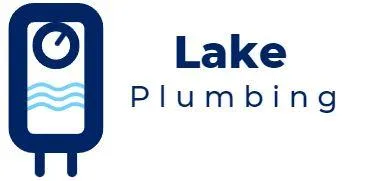Common Eclectic Water Heater Myths Revealed & Debunked
If you're a homeowner, you may encounter a number of myths about water heaters that can be perplexing. In order to assist you in distinguishing truth from falsehood, we have developed an informative guide that addresses prevalent misconceptions surrounding water heaters. By delving into this guide, you'll acquire valuable knowledge and uncover astonishing truths about water heaters.

Myth #1: They last forever
Did you know that water heaters actually have a limited lifespan? Although they can work for a few years, their durability is influenced by usage, maintenance, and quality. Generally, water heaters tend to last around 8 to 12 years. However, it's crucial to understand that delaying the replacement of an old unit can lead to expensive repairs and even water damage to your property. If your water heater is approaching the end of its expected lifespan, it's highly recommended to start looking into water heater replacement options promptly. This proactive approach can help you avoid experiencing these unfavorable circumstances.

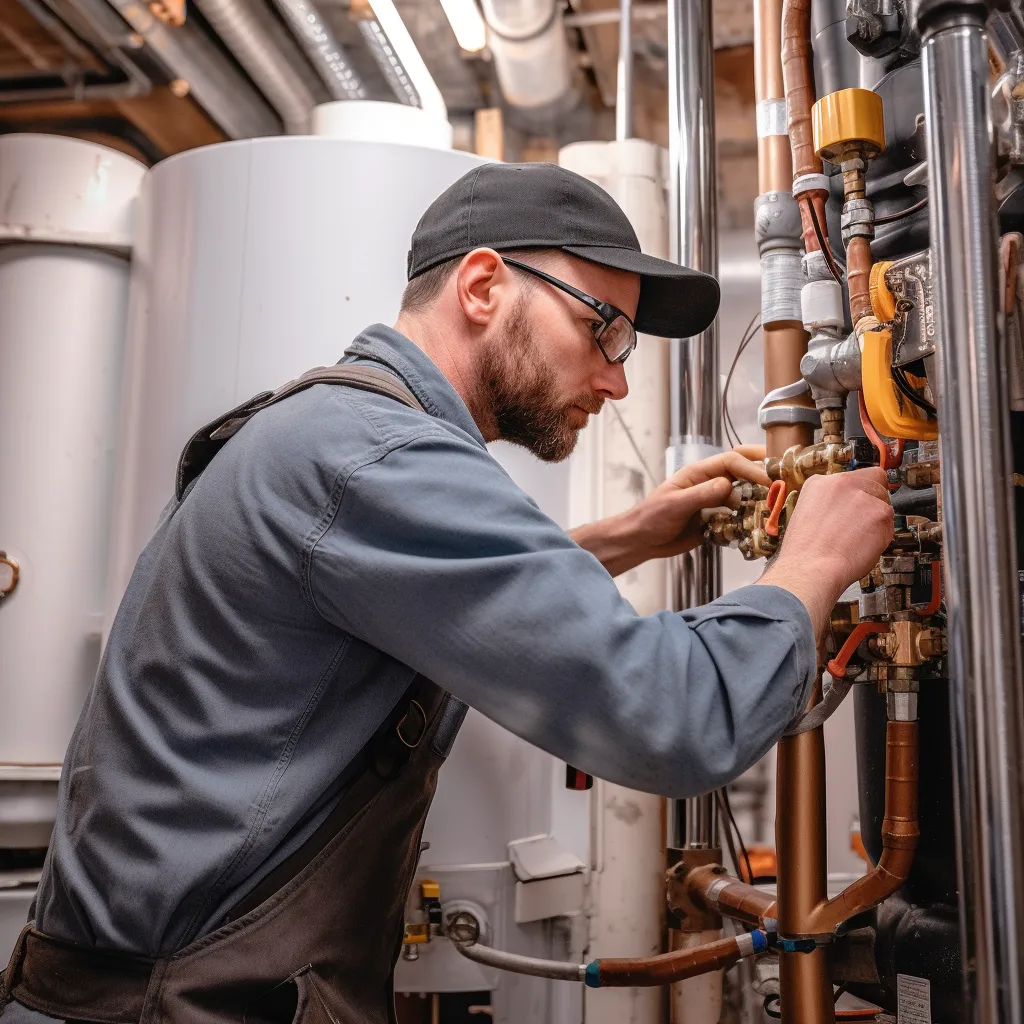
Myth #2: All water heaters are the same
It is important to debunk the myth that all water heaters are the same. This common misconception often leads homeowners to make unwise choices when selecting a new water heater for their needs. In reality, there are several different types of water heaters available in the market, each with its own unique features and benefits. These include traditional tank water heaters, tankless water heaters, heat pump water heaters, and solar water heaters. Tank water heaters are the most common type and store a specific amount of water that is heated and ready to use at all times. On the other hand, tankless water heaters heat water on-demand, providing hot water only when needed. This can result in significant energy savings and a continuous supply of hot water. Heat pump water heaters extract heat from the air and use it to heat the water, making them incredibly energy-efficient. Solar water heaters, as the name suggests, utilize the sun's energy to heat the water, making them an eco-friendly option. By understanding the differences between these water heater options, homeowners in Eclectic can choose the best type of water heater replacement based on their specific needs and preferences. Whether it's efficiency, cost-effectiveness, or environmental sustainability, selecting the right water heater can make all the difference in providing a reliable supply of hot water for years to come.
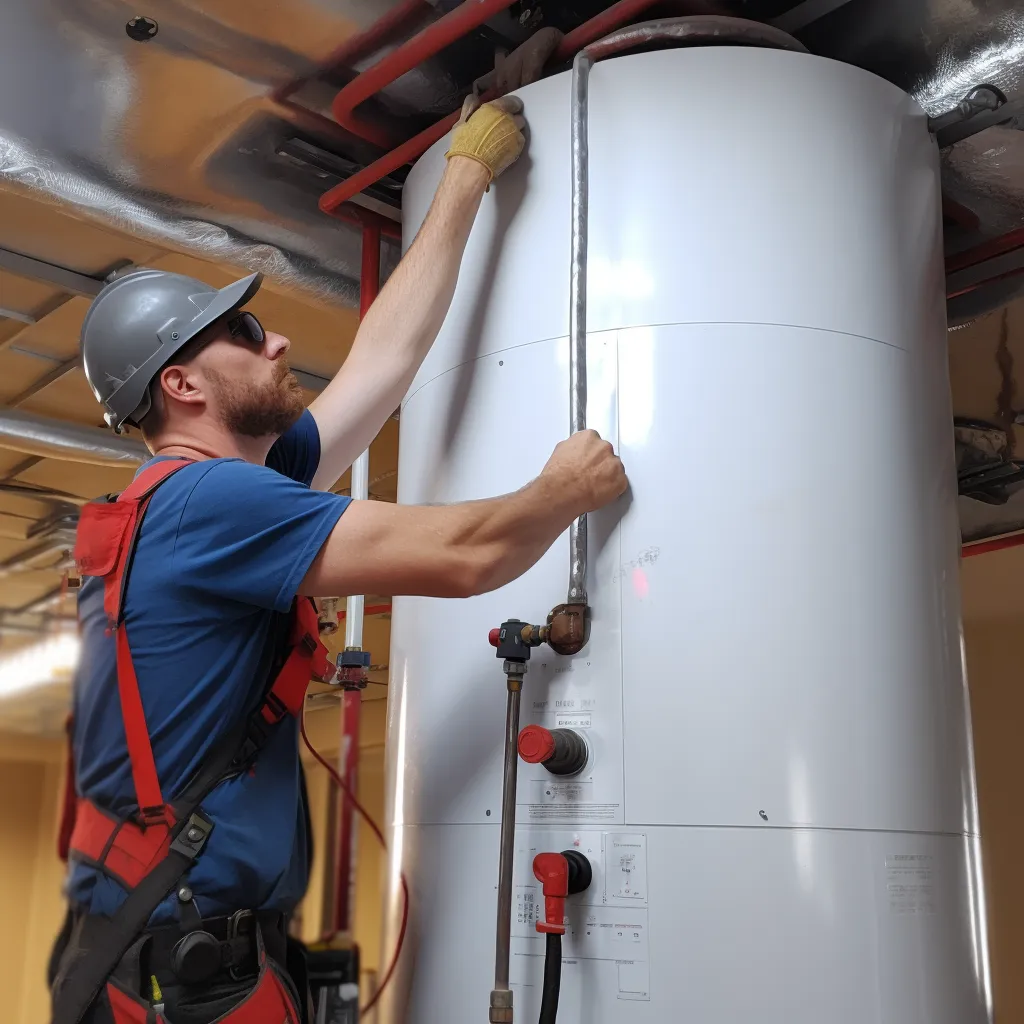
Myth #3: You get more hot water with a bigger tank
It is crucial to consider your specific hot water requirements rather than blindly opting for a larger tank. Although larger tanks can hold more water, they may result in excessive energy waste and higher utility bills without actually providing any additional hot water. Therefore, it is imperative to select a water heater tank that meets the hot water needs of your household while avoiding unnecessary financial strain. Choose wisely to ensure an adequate supply of hot water without any energy and cost-related concerns.
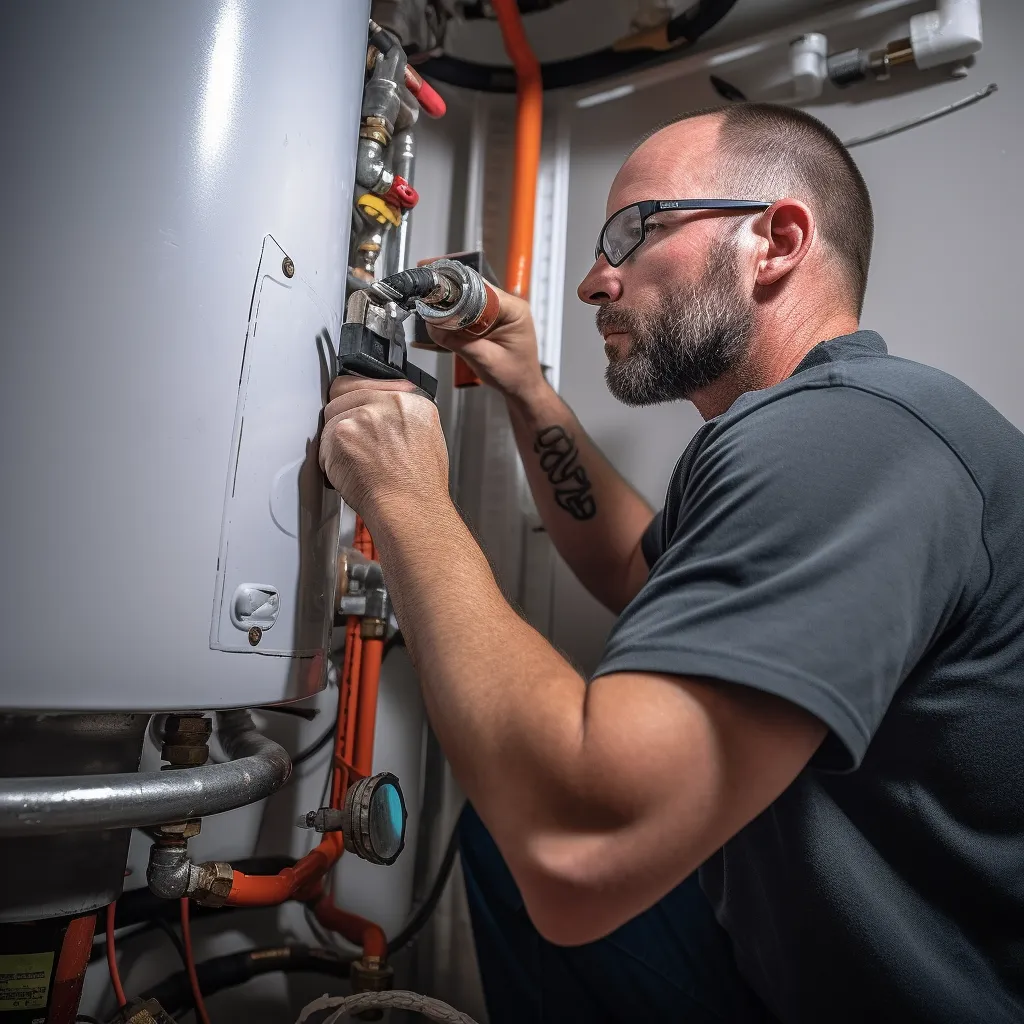
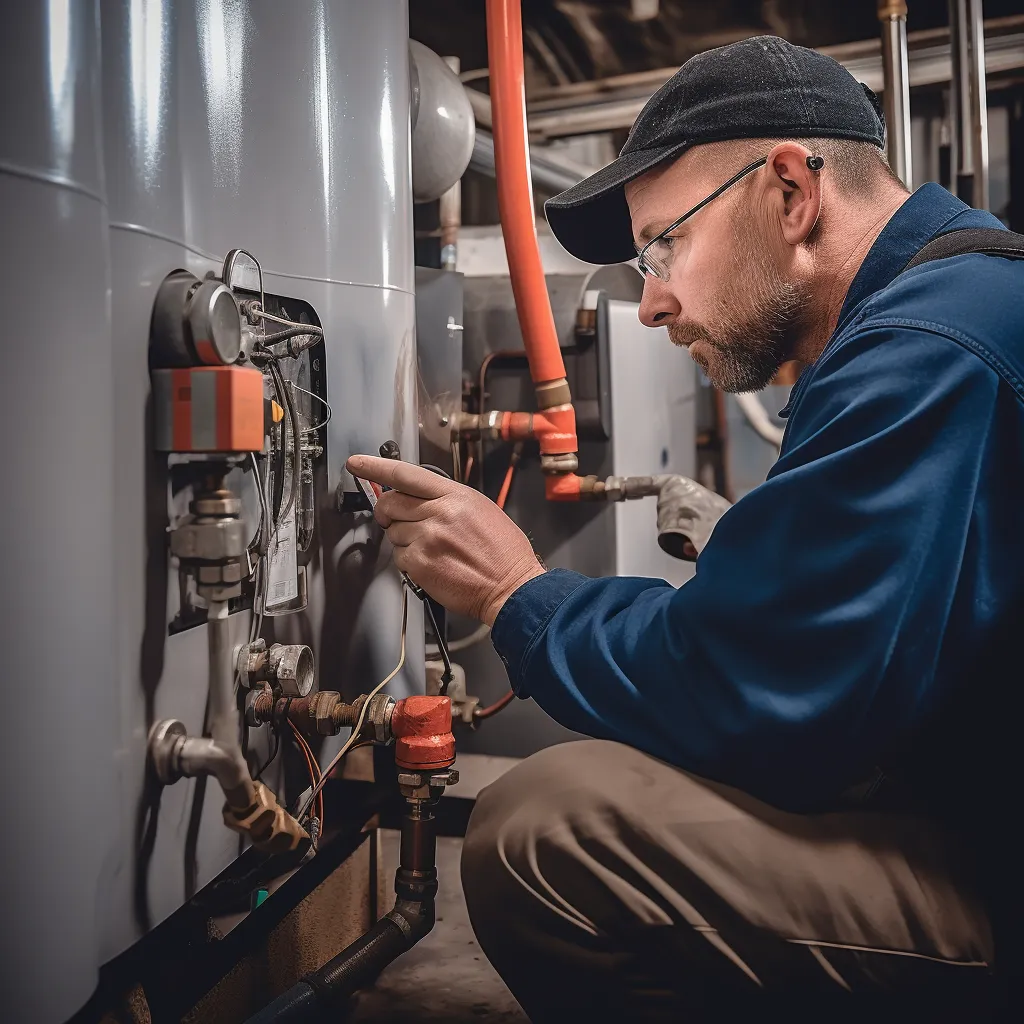
Myth #4: You can repair or replace your water heater yourself
If you're in need of water heater replacement in Eclectic, it is important to take action quickly. While you may be tempted to try fixing the issue yourself, this can potentially worsen the problem and may even put you at risk for personal injury. That's why it is highly advised to enlist the assistance of professional water heater repair technicians. These experts possess the necessary expertise and knowledge to effectively handle the situation and provide you with a reliable and efficient water heater replacement service.

Myth #5: Flushing water heaters isn't necessary
Many homeowners believe that a water heater does not require flushing, but this is a common myth. Flushing your water heater is an essential maintenance task that helps to extend its lifespan and improve its efficiency. Neglecting to flush your water heater can lead to a buildup of sediment and mineral deposits, reducing its performance and potentially causing damage. Over time, minerals and sediment accumulate in the water tank, which can affect the efficiency of your water heater. Flushing the tank involves draining out the accumulated sediment and replacing it with clean water. This process removes the buildup and prevents potential issues such as reduced water flow, uneven heating, and even premature failure.
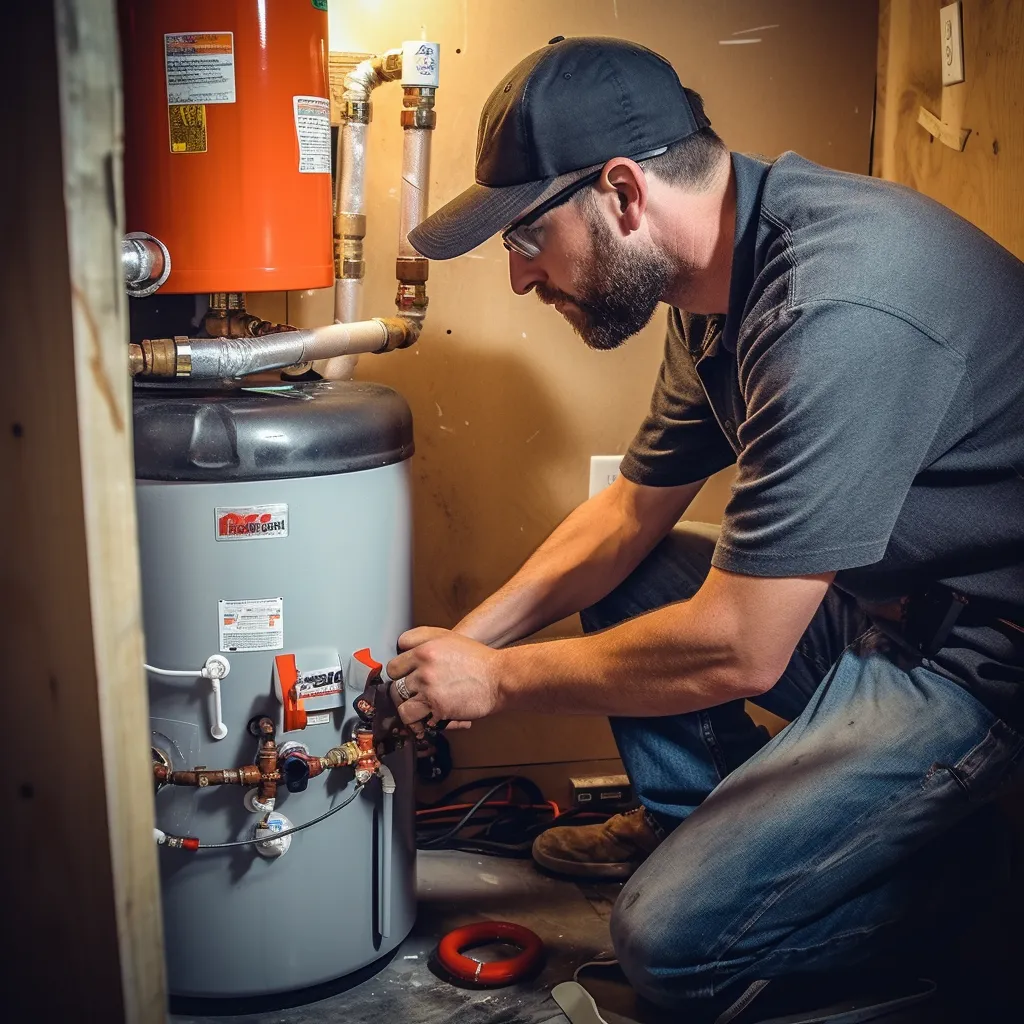
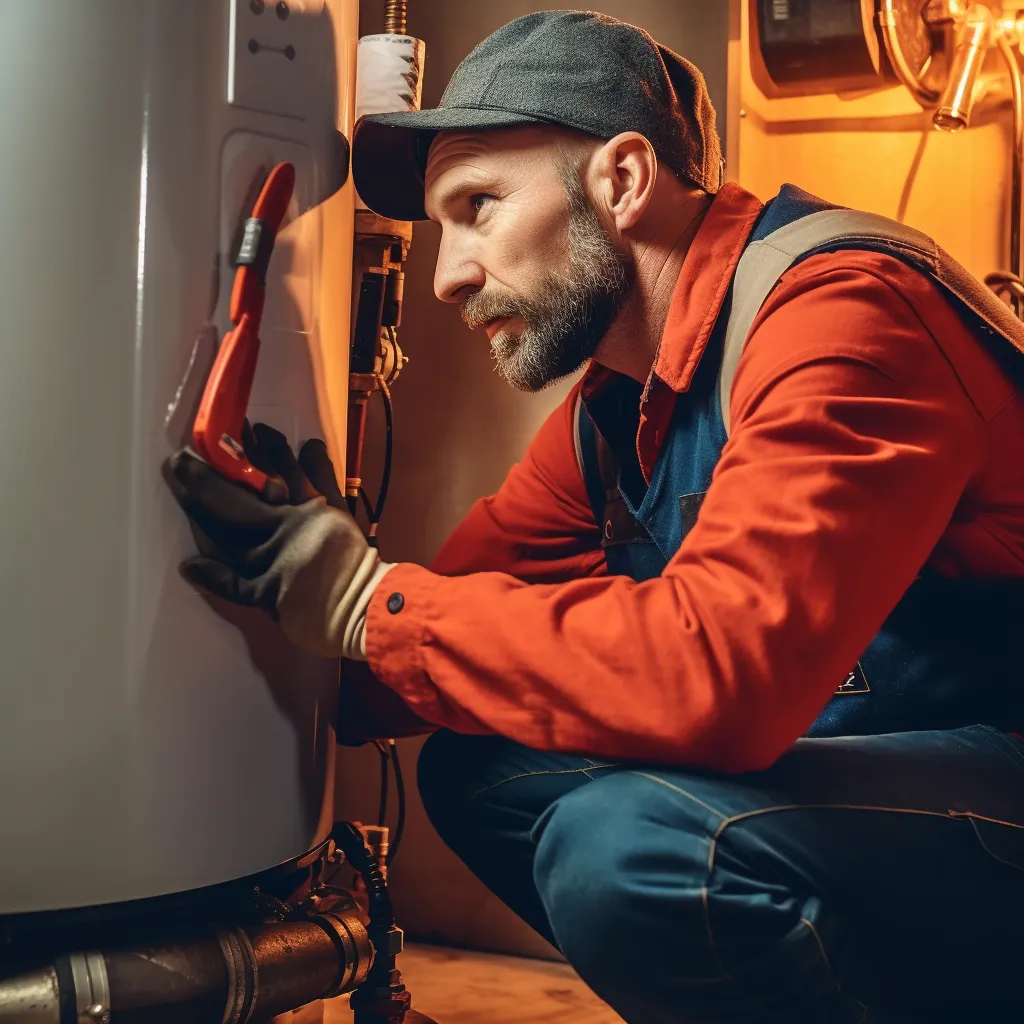
Myth #6: Keeping an outdated water heater saves money
There is a common misconception that keeping an outdated water heater can save you money. However, this is simply not the case. If you're living in Eclectic and considering water heater replacement, it's important to debunk this myth and understand why upgrading to a more modern and energy-efficient water heater can actually help you save money in the long run. Older water heaters, especially those that are more than 10 years old, tend to be less energy-efficient compared to newer models. They often rely on outdated technology and insulation, causing them to lose heat faster and consume more energy to maintain the desired water temperature. By contrast, newer water heaters are designed with advanced insulation materials and improved technology, making them more energy-efficient. These modern units are often equipped with features like improved tank insulation, digital controls, and better heating elements. This allows them to heat water more efficiently, resulting in lower energy bills. Additionally, older water heaters are more prone to develop issues and leaks over time. As they age, the risk of damage and failure increases, potentially leading to costly repairs or even flooding. On the other hand, by replacing your water heater with a newer model, you can avoid these potential problems and ensure reliable and consistent hot water supply without the risk of unexpected breakdowns. In terms of overall savings, a more energy-efficient water heater can significantly reduce your monthly energy costs. Newer models often have higher energy-efficiency ratings, which means they use less energy to heat the same amount of water. Over time, the savings can add up and make a noticeable difference in your utility bills.

Myth #7: Bigger water heater tanks are more energy efficient
You may have come across the myth that a bigger water tank is more energy efficient. However, this is not entirely true. The assumption behind this myth is that a larger tank will store more hot water, thereby reducing the need for the heater to reheat the water frequently. While this may seem logical, it does not take into account certain factors that affect energy efficiency. In reality, the energy efficiency of a water heater depends on various factors, such as the type of heater, insulation, and recovery rate. A bigger water tank does not necessarily mean a more efficient system. In fact, a larger tank can actually lead to more energy wastage if it is not properly sized for the household's needs.
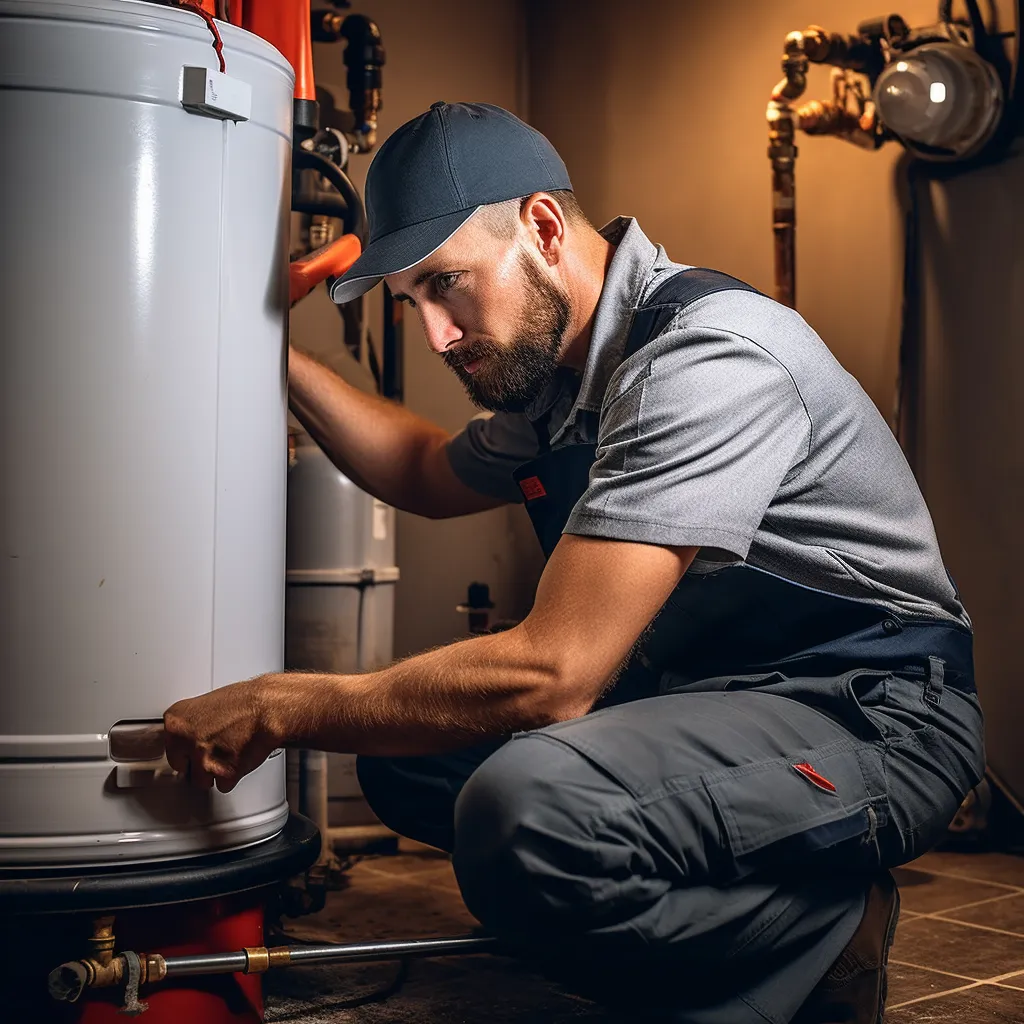
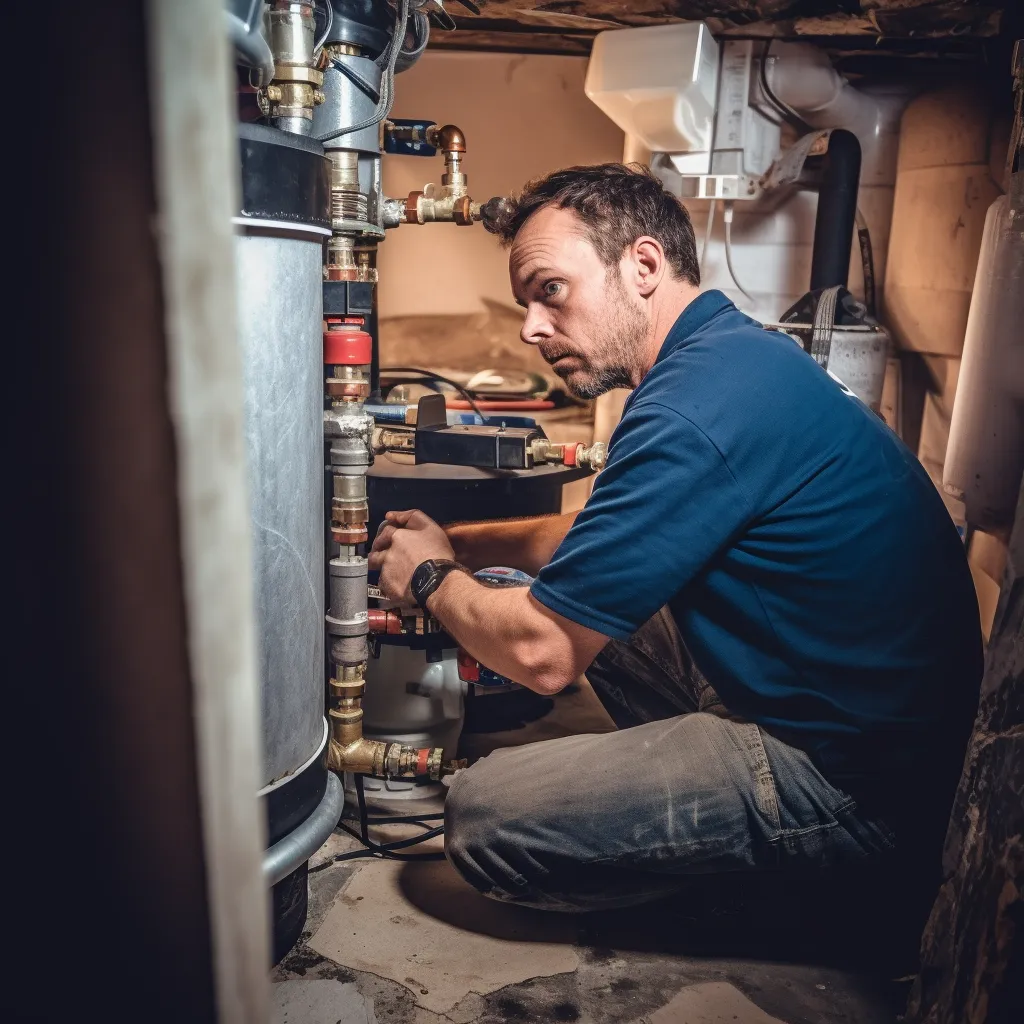
Myth # 8: There's no problem cranking up the water temperature
There is a common misconception that cranking up the water temperature is a good idea. However, this is nothing more than a myth. While it may seem like increasing the temperature will provide hotter water and better performance, it can actually lead to a number of problems. First, turning up the water temperature puts you at a higher risk of scalding accidents. Hot water can cause serious burns, especially in young children and older adults who may have thinner or more sensitive skin. Additionally, high temperatures can also increase the risk of accidental burns while showering or washing your hands. Moreover, cranking up the water temperature can negatively impact your energy bills. Water heating accounts for a significant portion of your monthly energy expenses, and raising the temperature unnecessarily only adds to this cost. By keeping the water temperature at recommended levels, you can save money and reduce your carbon footprint. In addition, higher water temperatures can also accelerate the buildup of mineral deposits inside your water heater tank. Over time, this can reduce the efficiency of your water heater and even lead to damage. Regular maintenance and flushing can help in mitigating these issues, but preventing them from occurring in the first place is more advisable.

Myth #9: Setting your water heater to the highest temperature is the way to go
One prevalent misconception is that setting your water heater to the highest temperature is the best approach. However, this is far from the truth. Setting your water heater to the highest temperature can actually have several negative consequences. Not only does it increase the risk of scalding injuries, especially for children and the elderly, but it also puts unnecessary strain on the heating elements and other internal components of the water heater. Moreover, maintaining a high temperature constantly leads to energy loss, as the water heater needs to work harder to maintain that temperature. This translates to higher utility bills and increased energy consumption. In stark contrast, setting the water heater temperature to a lower, but still safe, level can result in substantial energy savings over time. An optimal setting for most households is around 120 degrees Fahrenheit (49 degrees Celsius). This is hot enough for daily activities like bathing, washing dishes, and doing laundry but lower than the maximum temperature. By avoiding unnecessarily high temperatures, you can ensure the safety of your loved ones and save money on your energy bills.
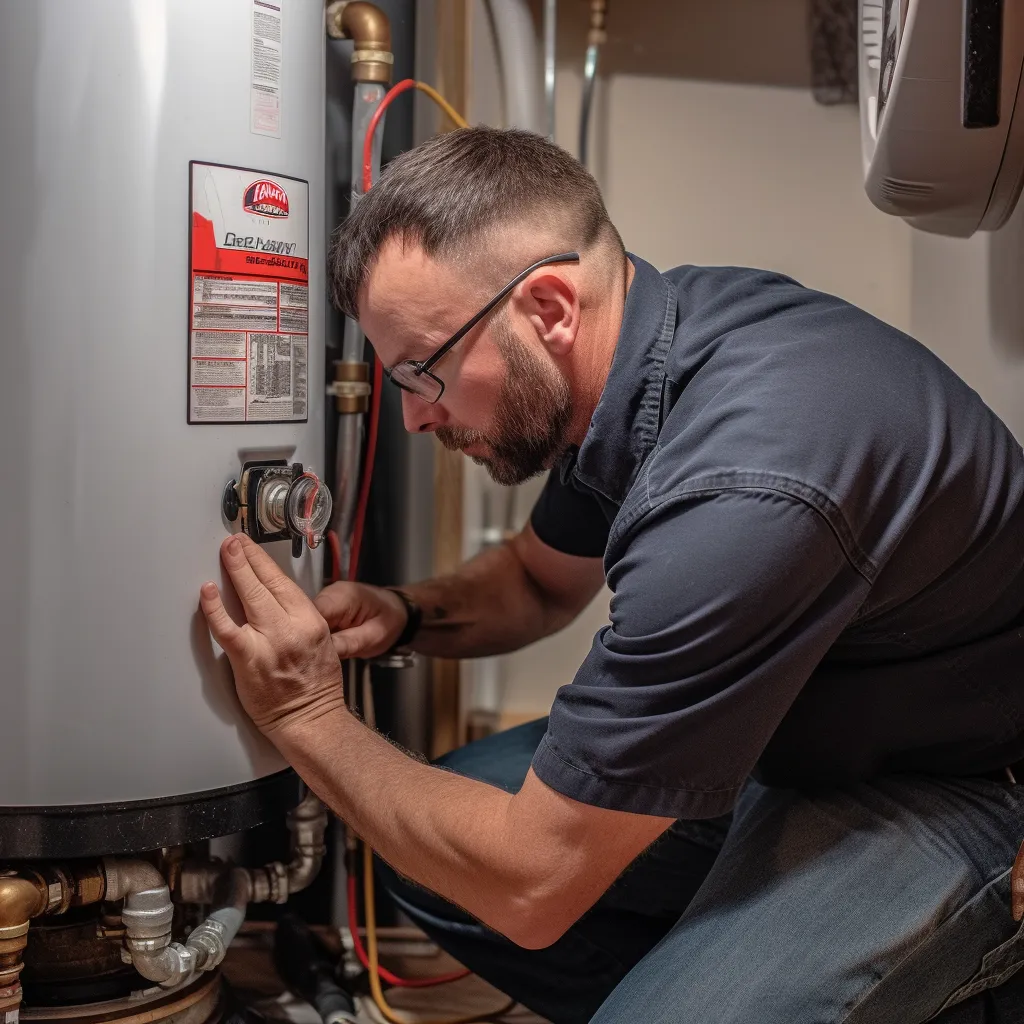
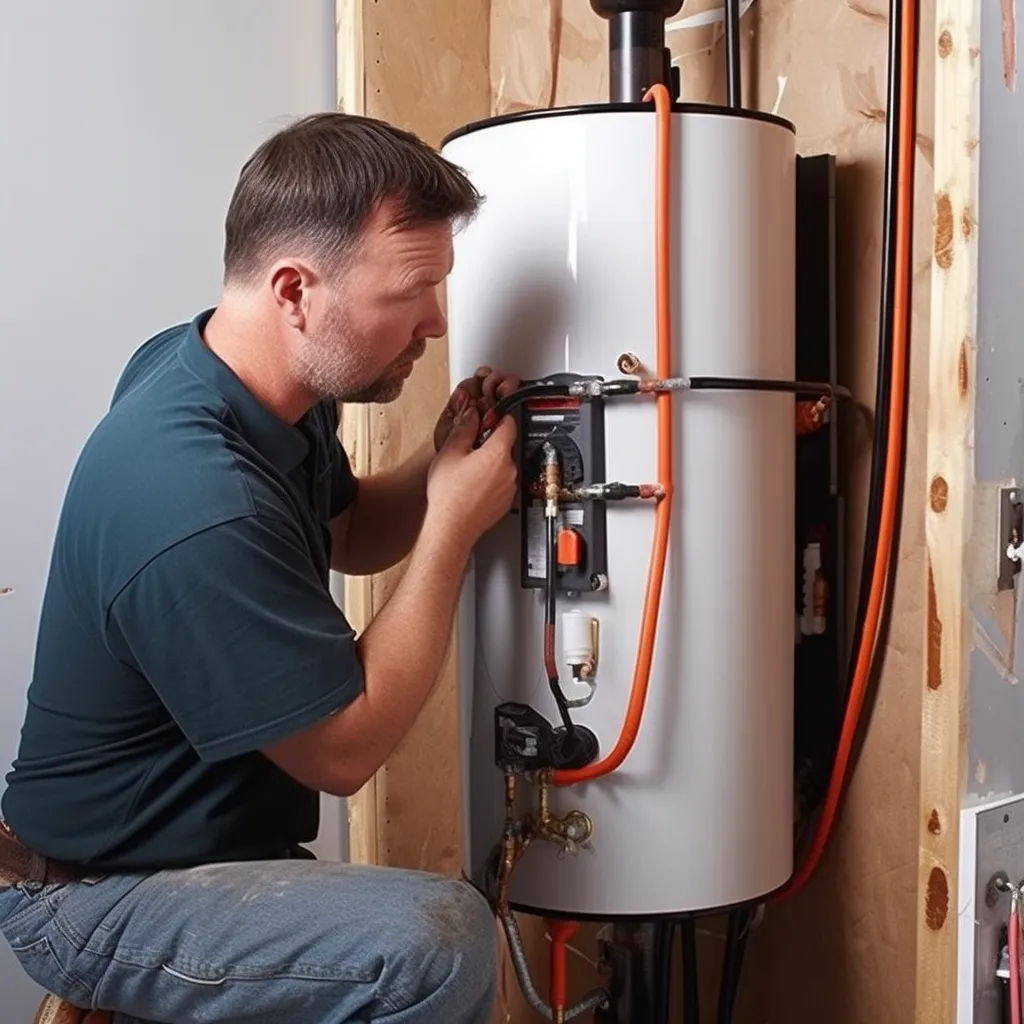
Myth #10: Water heaters waste energy
One common misconception is that water heaters waste energy. However, this is not entirely true. While it is true that water heaters consume energy to heat the water, there are several factors to consider before labeling it as wasteful. For instance, older water heaters may not be as energy-efficient as newer models, which could result in higher energy consumption. Additionally, improper installation or maintenance can also lead to energy waste. Therefore, it is essential to choose a water heater that is suitable for your needs and ensure that it is properly maintained to maximize energy efficiency.

Myth #11: Regularly maintaining water heater isn't necessary
It is a common myth that you don't need to regularly maintain a water heater. However, this misconception can lead to expensive repairs and even the need for a water heater replacement. Regular maintenance is essential to ensure the longevity and efficiency of your water heater. By neglecting maintenance, you risk allowing sediment buildup in the tank. This sediment can eventually cause the water heater to overheat, leading to the possibility of the tank cracking or even bursting. Additionally, failing to flush the tank regularly can result in diminished water quality and efficiency. To avoid these issues, experts recommend having your water heater inspected and serviced at least once a year. During this inspection, a professional plumber can check for leaks, clean out any sediment, and ensure that all components are functioning properly. Regular maintenance can also help detect any minor issues before they develop into major problems, ultimately saving you time, money, and the inconvenience of a sudden water heater breakdown.
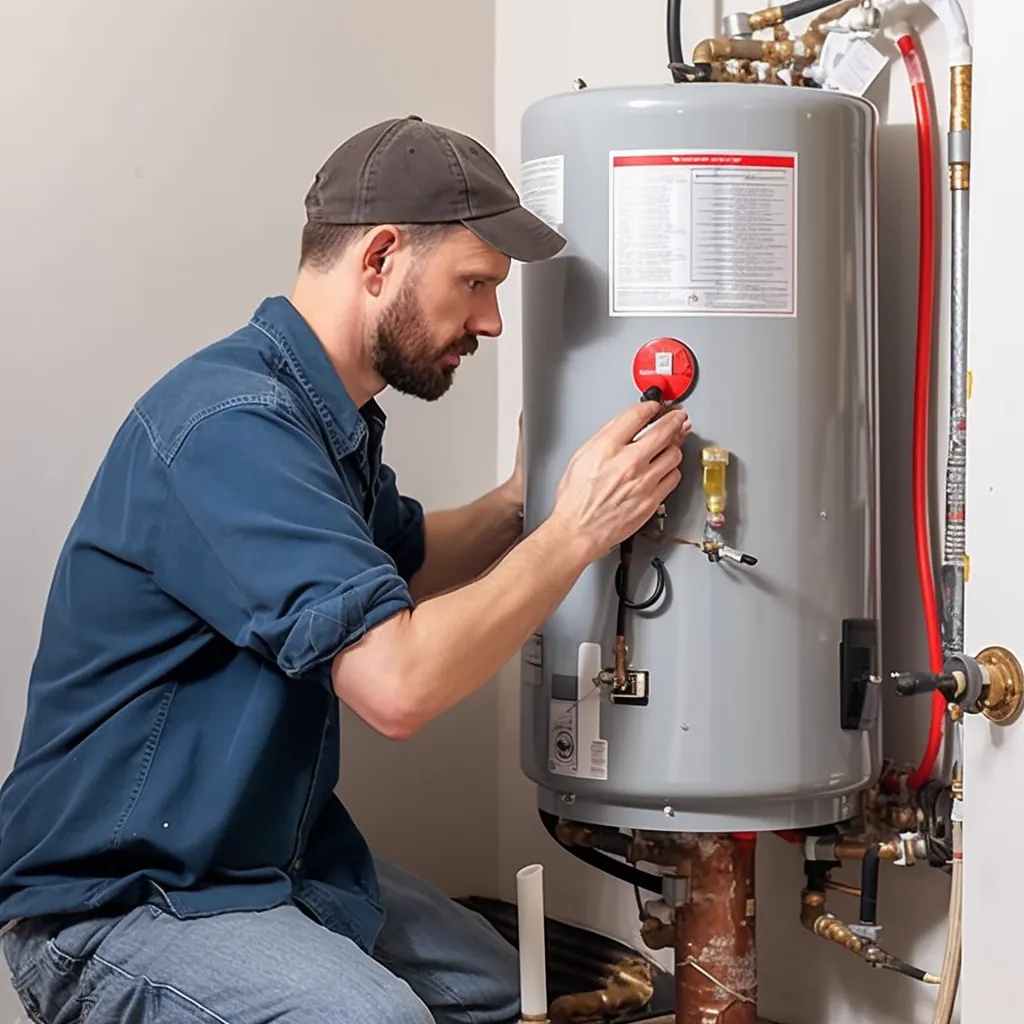
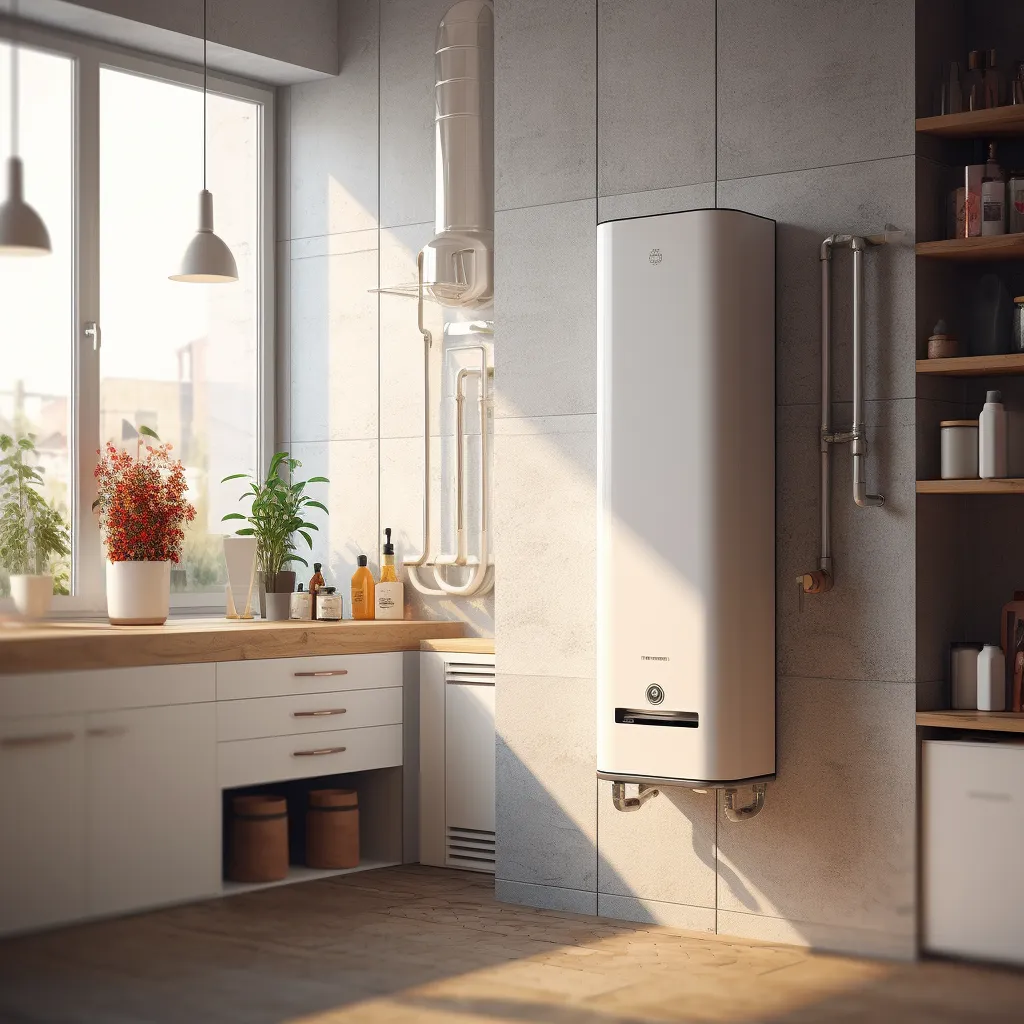
Myth #12: Any type of water heater is all right
When it comes to choosing a water heater, many people believe the myth that any type of water heater can be used in their homes. However, this is not true. It's crucial to understand that different types of water heaters have distinct features and suit specific needs. Selecting the right water heater for your Eclectic home requires careful consideration of factors such as the size of your home, your hot water needs, energy efficiency, and fuel source availability. There are three main types of water heaters commonly used in homes: tankless, storage tank, and heat pump water heaters. Each has its advantages and considerations. It's vital to consult with a professional to determine the best type for your home to ensure optimal performance and efficiency. In conclusion, the myth that any type of water heater can be used in a home is not accurate. It's important to assess your specific requirements and consult with a professional to determine the most suitable option for your needs.

Myth #13: Hard water damages your water heater
One common myth about water heaters is that hard water can damage them. However, this is not entirely true. While hard water can pose some challenges, it does not directly cause damage to your water heater. Hard water contains high levels of minerals such as calcium and magnesium. These minerals can accumulate over time and form deposits on the heating element and other parts of the water heater. These deposits can reduce the efficiency of the water heater by insulating the heating element, making it work harder to heat the water. Over time, the buildup of mineral deposits may lead to decreased water heater performance. This can result in increased energy consumption and higher utility bills. In severe cases, it may also cause premature failure of certain components, such as the heating element or the tank itself. To prevent or minimize the effects of hard water on your water heater, regular maintenance is crucial. Flushing the water heater at least once a year can help remove any built-up sediment or mineral deposits. Additionally, installing a water softener or a descaler can help reduce the impact of hard water and prolong the lifespan of your water heater.
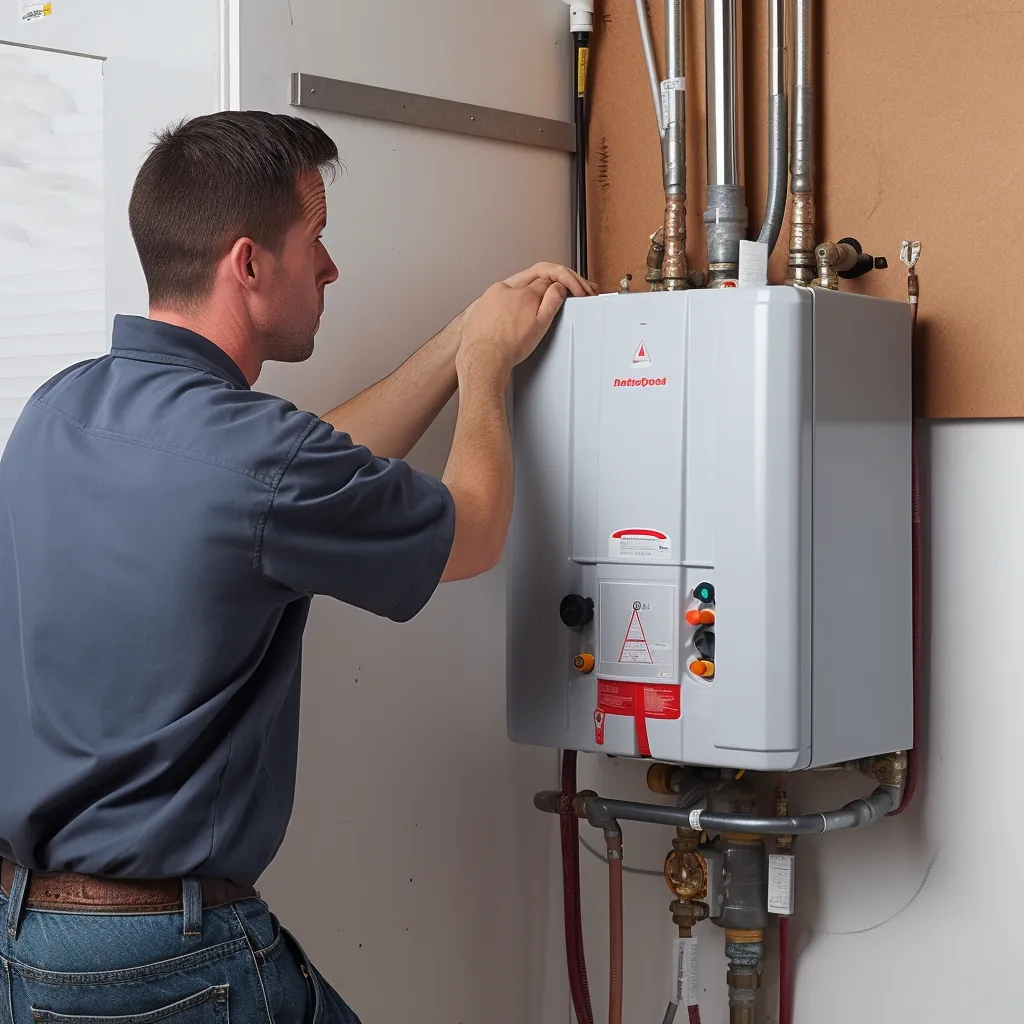
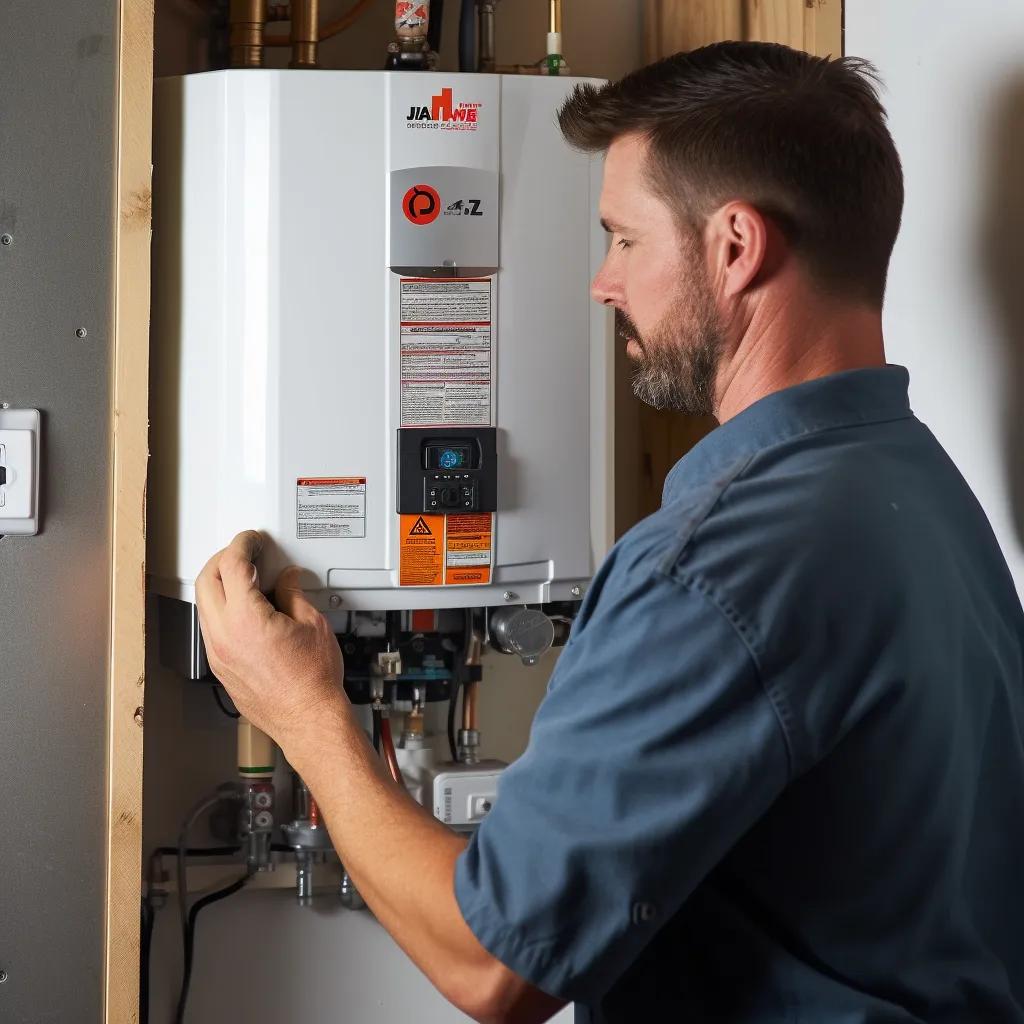
Myth #14: Tankless water heaters are more costly
When it comes to misconceptions about water heater replacement in Eclectic, one prevalent myth is that tankless water heaters are more expensive. However, this belief is not entirely accurate. While tankless water heaters usually come with a higher initial cost, they can actually save you money in the long run. Unlike traditional tank water heaters that constantly heat and store water, tankless water heaters only heat water on demand. This means they don't need to continuously use energy to maintain a large tank of hot water, resulting in reduced energy consumption and lower utility bills. Additionally, tankless water heaters have a longer lifespan than tank models, which means you'll have to replace them less frequently, further reducing overall costs. Moreover, the compact size of tankless water heaters allows for more flexibility in installation. They can be mounted on walls or even installed outdoors, which is particularly beneficial for homes with limited space.
Contact Us
